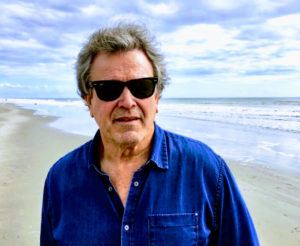
Before saying something about the Russian war in Ukraine after a long year, can we all look upon the hyperbole and invective surrounding the train derailment in Ohio and admit that it is pretty damned obvious who Republican politicians and right-wing entertainment “stars” fear most among Democrats in the near term? That would be Pete Buttigieg.
If some semi-anomymous chump along the lines of Trump-era grifters like Scott Atlas, or Peter Navarro or Ryan Zinke was parked in the Transportation Secretary’s office the usual echo chamber suspects wouldn’t be excoriating them by name and demanding hour after primetime hour they show up for a goddam train wreck.
Mayor Pete’s a smart dude. My guess is he understands the “outrage” is a clear tell of the right-wing’s fear of his political potency and therefore an ironic badge of credibility. (Just for kicks, I’d pay to see a Buttigieg-Ron DeSantis debate.)
But on the anniversary of the Russian invasion, lord knows no one needs another armchair general, especially one bunkered under ten feet of snow in a Minnesota suburb. But … despite not even playing a general on TV, I have consumed a lot of news reports, editorials and BBC, London Times Radio, German and Russian YouTube over the past year and feel confident enough to offer the following as a kind of digest.
1: In terms of Vladimir Putin’s successor: Well, there is none. By Putin’s design. But Russia’s military and economic situation is so perilous it is not unimaginable — “experts” believe — that he could be replaced. Not easily or peacefully. But replaced, nevertheless. But not, by my unscientific survey, by anyone less antagonistic to the West and Ukraine. In fact, I have yet to hear anyone on the topic suggest anything other than that the first move, succession-wise at the Kremlin, will be to install someone more hard-line, more vicious and more committed to total victory. Point being, no one that I’ve heard sees a popular uprising sweeping out Putin and that ghoulish, all-white collection of sycophants attending his “state of the union” address and replacing them with a 2023 version of Vaclev Havel.
2: Putin will not use nukes. At least not until his situation is desperate, and by that the pros always specify, his situation, not Russia’s. But the nuclear option comes with a handful of serious existential risks. Not the least of which is that given the corruption within his military, and the current brawling between the head of the Wagner group and the Defense Ministry, Putin can not be certain entirely anyone will follow his order to use nukes. A nuclear mutiny if you will would be a kind of final dagger to his hold over the country. Additionally and tactically, various generals and intelligence experts interviewed are certain that Putin and his current military leaders have been explicitly warned that nukes would result in an immediate, near full-scale NATO response, initially on what remains of his Black Sea fleet and any/all suplly depots and points of access into Ukraine. Finally there’s also the issue of what target to use a nuke on? Flattening Kyiv might seem obvious, but again, any Russian general can imagine NATO’s (and China’s) response. Alternately, radiating a hundred square miles of Ukrainian countryside serves very little tactical purpose.
3: Russia’s economic situation is far, far worse than standard news reports are showing. One of the more interesting characters making regular comment on the Russian economy is Jeffery Sonnenfeld, professor and senior associate dean at the Yale School of Management. He’s a garrulous guy with a torrent of opinions on Western sanctions, Russia’s myriad industrial predicaments and the hypocrisy of dozens of big name Western/international corporations — Heineken beer, Benetton, Carls Jr.(!), Emirates Airlines, Guess, Hard Rock Cafe, Iridium, Kawasaki, LaCoste, Mitsubishi, Patreon, Qatar Airways, Sbarro Pizza, Sherwin Williams, TGIFriday’s, Tom Ford, Tupperware and Yamaha and a couple hundred others — who have not ceased all operations in Putin’s Russia.
Sonnenfeld regularly argues that reports by the IMF and otherwise credible agencies reporting on the Russian economy are not disclosing that the startling rosy numbers showing only modest declines in GDP, etc. are in fact served up to them by … Kremlin bureaucrats. This in an economy where foreign traders cannot/will not deal in rubles, where the volumes of oil and gas, (40% of the Russuian economy) being sold are not being confirmed by reputable outside agencies and where unemployment statistics in Russia are equally suspect. He also reminds his audience that Europe has done a frankly amazing job of transitioning from Russian fossil fuels, a transition that it will likely never reverse … to Russia’s eternal disadvantage.
At the risk of misrepresenting his bottom line argument, Sonnenfeld says it is Russia and not the easily distracted, restless-with-commitment West that is living on borrowed time.


